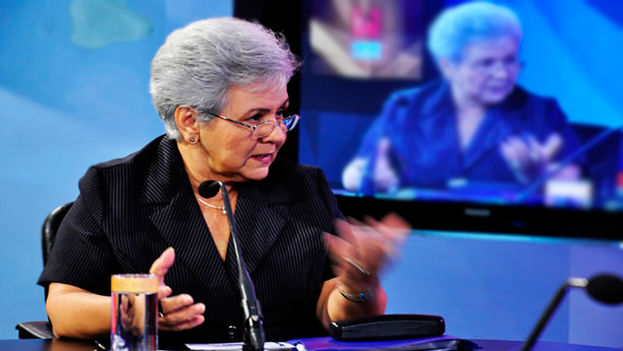
![]() 14ymedio, Marcelo Hernandez, Havana, 28 January 2017 — What Cuban has not diverted resources from his work place? Theft from the State together with administrative negligence and corruption are among the main problems detected by the most recent National Internal Audit concluded at the end of the year.
14ymedio, Marcelo Hernandez, Havana, 28 January 2017 — What Cuban has not diverted resources from his work place? Theft from the State together with administrative negligence and corruption are among the main problems detected by the most recent National Internal Audit concluded at the end of the year.
Between October 31 and December 9, 346 economic entities from all over the country, with the exception of Guantanamo, the province most affected by Hurricane Matthew, were inspected. The 11th edition of the exercise focused on the decentralization of administrative decision-making, non-agricultural cooperatives and the application of systems of payments for results.
Gladys Bejerano Portela stands out at the head of the process, the face of the Republic’s Controller General, created in 2009 by Raul Castro to deter administrative disorder. The official has become a nightmare for business administrators and managers, but her iron image does not seem to be enough to dissuade the corrupt.
For weeks the controller deployed an integrated exercise by hundreds of auditors, experts, students and university professors to find the holes through which resources leak. At the center of their focus were also the so-called idle inventories, vestiges of stagnation that cram warehouses or rot under the tropical sun.
Since the beginning of this year some local newspapers have begun publishing summaries of the most serious problems found by the audit, but the national report still has not been released. Presumably the entity will make an accounting before parliamentarians in the next session of the National Assembly.
In the Cienfuegos province, the Acopio Enterprise showed “serious irregularities in the area of accounting and in the management of resources, to the point that three suspected acts of criminality and corruption are under consideration,” asserted Elsa Puga Rochel, head controller in that central province.
In Matanzas alarms also sounded when auditors concluded that the results of the inspection “reflect a disfavorable situation” that is catalogued as a “setback” when compared to the same examination carried out in 2015.
In the Yumurino territory economic damage caused by the diversion of resources, administrative mismanagement, corruption and other economic ills are marked by “steady progress for the last five years,” according to Carmen Elsa Alfonso Aceguera, chief controller of the province.
In that province at least eight criminal acts were evident in four entities, and “operations of doubtful characteristics” also indicate four suspected acts of corruption in three of them: two in the Puntarenas-Caleta Hotel Complex, one in the Oasis-Canimao-Villa Artistic Complex and another in the Jovellanos Agricultural Products Marketer.
When auditors inspected the books of the Matanzas non-agricultural cooperatives they found “deficiencies in income and expense plans, problems with supplies and contracting with state entities.”
In the Pinar del Rio province, the Aqueduct and Sewage Company, the Electric Company, and the Pharmacy and Opticians stand out among the enterprises with the worst results. The chain of problems includes salary payments without corresponding productivity, aging accounts, and poorly performed inventories.
In five Villa Clara municipalities there were a whopping 325 economic deficiencies, and 30 disciplinary measures were applied. The controller general herself travelled there in order to warn local administrators that “internal control actions cannot be seen as something sporadic or the work of a day,” but must be taken on as “a form of human behavior that does not allow tolerance of the least neglect.”
In another of her interventions, in Holguin, the controller was blunt: “Without organization, discipline and control, it is impossible to achieve the prosperous and sustainable development that we have set out for ourselves.”
Raul Castro has been emphatic in suggesting that “without conformation to an environment of order, discipline and stringency in society, any result will be ephemeral.” The official press has also joined the battle against the diversion of resources, and in recent years it has published many reports about illegalities and corruption.
Translated by Mary Lou Keel
